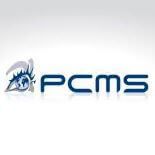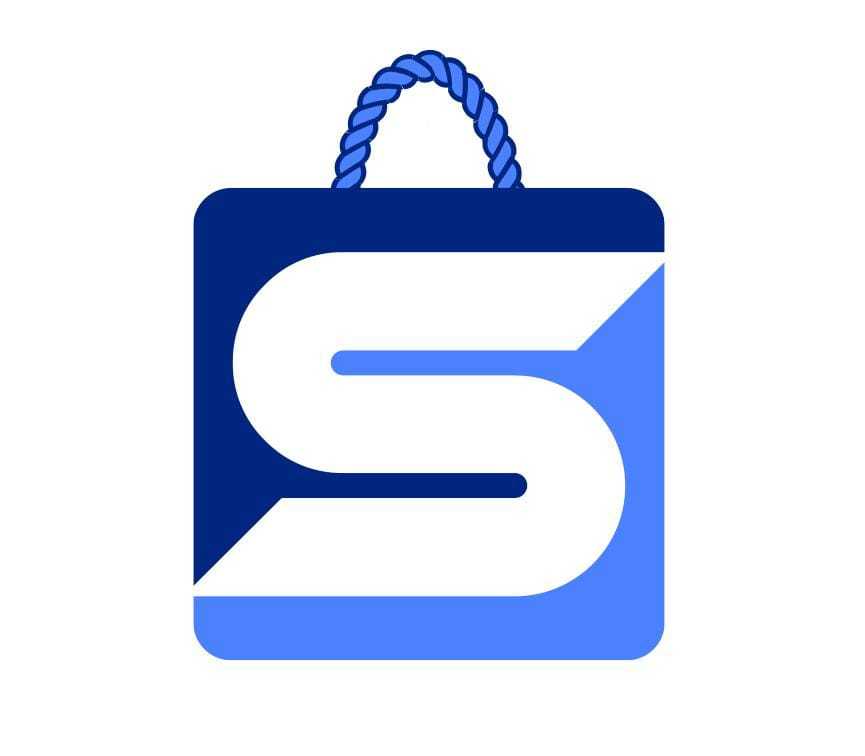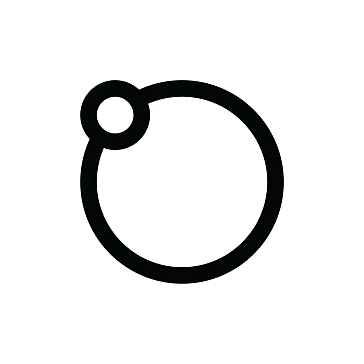Description

Retail Garment Store

CAP POS
Comprehensive Overview: Retail Garment Store vs CAP POS
To provide a comprehensive overview of Retail Garment Store solutions like CAP POS and PCMS Retail, we need to delve into each product's primary functions, target market, market share, user base, and key differentiators. I'll do my best to encapsulate this information based on general industry knowledge.
a) Primary Functions and Target Markets
CAP POS
- Primary Functions:
- CAP POS is a point-of-sale software designed to cater to small to medium-sized retail businesses. It offers functionalities such as inventory management, sales tracking, customer management, and reporting and analytics. The software often includes features for managing promotions, handling returns, and integrating with e-commerce platforms.
- Target Market:
- The primary target market for CAP POS is small to medium-sized retail businesses that require a flexible and cost-effective solution to manage their retail operations efficiently. This includes independent retailers, small chains, and boutique stores.
PCMS Retail
- Primary Functions:
- PCMS is known for its enterprise-level retail solutions. It offers a comprehensive suite for point-of-sale systems including inventory management, customer engagement, payments, and promotional analytics. PCMS systems often provide integrated solutions that include backend processing and advanced data analytics to streamline operations across multiple locations.
- Target Market:
- PCMS primarily targets larger retail enterprises and chain stores that require robust, scalable solutions capable of handling complex operations across multiple locations and channels.
b) Market Share and User Base
- CAP POS:
- CAP POS is popular among small to medium-sized businesses due to its affordability and comprehensive features that cater to the needs of these retailers. However, in terms of market share, it is less prominent as compared to larger, more established companies serving the same market segment globally.
- PCMS Retail:
- PCMS holds a significant market share within the retail technology industry, particularly among large retail chains and supermarkets. Its user base is extensive given its capability to serve complex requirements of large-scale operations. The focus on enterprise clients means it often features in conversations about robust retail technology solutions.
c) Key Differentiating Factors
-
Flexibility and Scalability:
- CAP POS is typically more flexible for small retailers in terms of cost and customization. Its solutions are not as complex, making them easy to set up and manage without extensive technical expertise.
- PCMS offers scalability, making it more suitable for large retailers who expect to expand their operations or require a system that can handle a high volume of transactions seamlessly.
-
Customer Focus:
- CAP POS tends to focus more on user-friendly interfaces for smaller operations, with a focus on straightforward functionality that covers all basic retail requirements.
- PCMS focuses on large-scale integration across multiple retail channels, emphasizing advanced analytics, customer experience, and optimized backend operations.
-
Implementation and Support:
- CAP POS often features quicker implementation with relatively simple systems that require less intensive training.
- PCMS usually involves more complex integration which might require customized installation and training, but offers robust customer support for large enterprises.
-
Technological Ecosystem:
- CAP POS may be limited to specific standalone solutions or basic integrations.
- PCMS typically provides omni-channel capabilities and integrations with enterprise-level resource planning systems, offering a more comprehensive approach.
In summary, while both CAP POS and PCMS Retail serve the retail industry, their offerings are suited to different scales of operation. CAP POS excels in providing cost-effective solutions for small to medium-sized businesses, whereas PCMS offers complex and scalable solutions ideal for large enterprises.
Contact Info

Year founded :
Not Available
Not Available
Not Available
Not Available
Not Available

Year founded :
Not Available
Not Available
Not Available
Not Available
Not Available
Feature Similarity Breakdown: Retail Garment Store, CAP POS
When comparing retail software solutions like Retail Garment Store, CAP POS, and PCMS Retail, it’s important to break down their core features, user interfaces, and unique offerings. While specifics can vary by version and customization, here's a general overview:
a) Core Features in Common:
-
Point of Sale (POS) Functionality:
- All these systems provide fundamental POS capabilities, including sales processing, receipt generation, and cash management.
-
Inventory Management:
- Features for tracking stock levels, managing reorders, and handling stock transfers are common.
-
Customer Relationship Management (CRM):
- Tools for managing customer data, purchase history, and loyalty programs.
-
Reporting and Analytics:
- Each system offers basic to advanced reporting features to analyze sales, inventory turnover, and customer behaviors.
-
Multi-Channel Integration:
- Integration with e-commerce platforms and marketplaces to support multi-channel retailing.
-
Employee Management:
- Basic features for tracking employee sales performance and managing schedules.
b) User Interface Comparison:
-
Retail Garment Store:
- Typically designed with a focus on fashion retail, often featuring a more visual and feature-rich interface to handle apparel specifics (color, size, style, etc.).
- UI is often customizable to match the branding and operational workflow of fashion retail businesses.
-
CAP POS:
- Known for its user-friendly and straightforward design, focusing on simplicity and ease of use for small to mid-sized retailers.
- Intuitive navigation makes it accessible for businesses new to digital POS systems.
-
PCMS Retail:
- Often provides a more robust, enterprise-level interface designed to handle complex operations.
- Offers a high degree of customization to meet the needs of larger retail chains.
c) Unique Features:
-
Retail Garment Store:
- May include advanced merchandising features tailored specifically for fashion retailers, such as lookbooks, season-wise collection management, and specific apparel matrix handling (size, color variations).
-
CAP POS:
- Known for tight integration with various payment processors.
- Often favored for its straightforward, low-cost implementation for small to mid-sized businesses.
-
PCMS Retail:
- Extensive scalability and integration capabilities, often including omnichannel solutions that cater to enterprise-level needs.
- Advanced promotional and pricing engines to handle complex pricing structures and campaigns.
Each of these software solutions has its strengths, particularly suitable for different scales and types of retail businesses. Retailers should consider their specific needs, such as inventory complexity, number of store locations, and growth plans, when selecting a POS solution.
Features

Inventory Management
Customer Relationship Management
Employee Management
Point of Sale
Sales and Reporting

Efficient Transaction Management
Customer Relationship Management
Sales and Reporting
User-Friendly Interface
Inventory Management
Sales Management
Inventory Control
Customer Management
Reporting and Analytics
Best Fit Use Cases: Retail Garment Store, CAP POS
To determine the best fit use cases for Retail Garment Store, CAP POS, and PCMS Retail, let's consider their unique features and strengths:
a) Retail Garment Store
Best Fit Use Cases:
- Types of Businesses: Primarily small to medium-sized clothing retailers, boutiques, or chains that specialize in apparel.
- Project Needs: Businesses focused on managing inventory specific to garments, tracking fashion trends, and enhancing customer engagement. This is ideal for retailers that need specific features like size and color categorization, seasonal inventory management, and targeted promotions.
Why It’s a Good Choice:
- Tailored for the nuances of the fashion industry, including SKU management for different styles, sizes, and colors.
- Offers visual merchandising tools to enhance in-store layout and presentation.
- Facilitates customer-focused marketing strategies, helping users to adapt quickly to fast-changing fashion trends.
b) CAP POS
Best Fit Use Cases:
- Types of Businesses: Versatile across multiple retail environments, including small businesses, food services, quick-service restaurants, and convenience stores.
- Project Needs: Ideal for businesses seeking a user-friendly, cost-effective point-of-sale solution with robust transaction handling capabilities and basic inventory management.
Why It’s the Preferred Option:
- Provides easy setup and intuitive interfaces, reducing training time for staff.
- Supports quick transactions, which is crucial for high-traffic environments like food service and convenience stores.
- Offers straightforward reporting and customer management features, useful for smaller operations where simplicity and efficiency are prioritized.
c) PCMS Retail
Best Fit Use Cases:
- Types of Businesses: Large, multi-location retailers needing an integrated, scalable solution for complex operations.
- Project Needs: Suitable for enterprises with a focus on centralizing operations, enhancing customer experience across various channels, and requiring extensive back-end integration with existing systems.
Why Users Should Consider PCMS Retail:
- Provides advanced scalability and heavy customization, supporting extensive inventories and multi-store environments.
- Offers seamless omnichannel capabilities, connecting online and offline operations.
- Incorporates comprehensive analytics and reporting tools, catering to the needs of large-scale businesses with complex data requirements.
d) Catering to Different Industry Verticals or Company Sizes
-
Industry Verticals:
- Retail Garment Store is highly specialized for fashion and clothing stores.
- CAP POS serves a range of verticals including retail, hospitality, and convenience sectors, offering flexibility in POS functionalities.
- PCMS Retail is suited for broader retail sectors with advanced needs, including department stores, supermarkets, and specialty retail chains.
-
Company Sizes:
- Retail Garment Store: Best for small to medium-sized fashion retailers that require specific features but not the complexity of an enterprise solution.
- CAP POS: Ideal for small to medium-sized businesses across various industries that prioritize simple, efficient transaction processing.
- PCMS Retail: Tailored for large enterprises with significant integration needs and multiple locations, offering extensive scalability and customization.
By understanding these distinctions, businesses can choose the solution that best aligns with their specific needs based on industry focus, scale, and operational complexity.
Pricing

Pricing Not Available

Pricing Not Available
Metrics History
Metrics History
Comparing undefined across companies
Conclusion & Final Verdict: Retail Garment Store vs CAP POS
To provide a conclusion and final verdict on the comparison between Retail Garment Store software, CAP POS, and PCMS Retail, let's look at each point in detail:
Conclusion:
After carefully evaluating the features, pricing, scalability, ease of use, and support provided by Retail Garment Store, CAP POS, and PCMS Retail, a balanced assessment reveals that each product has unique strengths and limitations. Here is the verdict based on these factors:
a) Considering all factors, which product offers the best overall value?
PCMS Retail emerges as the solution offering the best overall value, especially for medium to large-scale retailers with complex demands. It combines extensive features with robust integration capabilities, making it a great fit for comprehensive retail operations. However, this may not hold true for smaller businesses or startups due to its potentially higher cost and complexity.
b) Pros and Cons of Choosing Each Product:
Retail Garment Store:
-
Pros:
- Tailored specifically for the garment and apparel industry.
- Includes specific features such as inventory for styles, sizes, and colors.
- User-friendly interface suitable for small to medium businesses.
-
Cons:
- Limited scalability for larger businesses.
- May lack in broader retail functionalities required by diverse retailers.
CAP POS:
-
Pros:
- Affordable pricing model, making it a good choice for small retailers.
- Easy-to-use interface with essential POS functionalities.
- Good customer service with customizable solutions for specific small-business needs.
-
Cons:
- Limited advanced features and scalability.
- Less suited for medium to large enterprises with complex needs.
PCMS Retail:
-
Pros:
- Highly scalable and suitable for larger retail environments.
- Comprehensive suite of features including omnichannel capabilities.
- Strong integration options with other business systems.
-
Cons:
- Higher cost, making it less accessible for smaller retailers.
- Can be complex to implement and may require specialized IT support.
c) Recommendations for Users:
- Smaller Businesses/Startups:
- Consider starting with CAP POS due to its affordability and basic feature set tailored for smaller operations.
- Specialized Garment Retailers:
- Retail Garment Store is the best fit due to its focus on apparel industry specifics, allowing for better handling of inventory by size and style.
- Mid to Large Enterprises/Scalable Needs:
- Opt for PCMS Retail if your business requires a more robust, integrated solution capable of handling complex retail operations across multiple channels.
It's crucial for potential users to conduct a detailed assessment of their specific business needs, weighing the scalability, feature requirements, and budget constraints before finalizing their choice. Engaging in trials or demos where possible can also provide better insight into practical suitability.
Add to compare
Add similar companies



